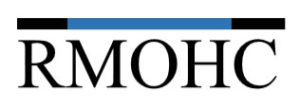Hi LinkedIn readers! Let’s talk about a Fraud affecting Main Street Businesses. Are you a small business that is not publicly traded and you have a staff of 1-20? Then you are a Main Street Business.
Main Street Business Fraud stems from the Opportunity side of the Fraud Triangle. Opportunity means what aspects in the corporate culture helped create the possibility for fraud to happen, and/or in what aspects of the corporate culture did the Fraudster find Opportunity to commit fraud?
Defrauded business owners are indeed victims, but it takes to defraud, uh, I mean, tango. Let’s look at how business owners almost beg to be defrauded. Fill in your answers to each of these questions:
1. Doesn’t know anything about running a business or accounting…AND DOES NOT WANT TO LEARN.
Fill in what opportunity the Fraudster sees: _________________________________________________
2. S/He has 3 PhD’s, a JD, an MD, DDS or some other degree of higher learning and it is BELOW them to look at something as mundane as accounting, or god forbid, bookkeeping!
Fill in what opportunity the Fraudster sees: _________________________________________________
3. I don’t have time to spend on all this accounting and finance stuff, that is why I hire others to do it. I have more important things to do! Let them handle it.
Fill in what opportunity the Fraudster sees: _________________________________________________
4. My mom, my son, my husband, my best friend, my lover, etc. does my books, and I trust them implicitly! They would never steal from me!
Fill in what opportunity the Fraudster sees: _________________________________________________
5. I inherited the company. It really is not my job, even if I am the owner now. So leave me alone!
Fill in what opportunity the Fraudster sees: _________________________________________________
Here is the $65,000 question for you, Mr./Ms. Mainstreet Business Owner:
1. Whose business is this really, yours or someone else’s?
2. Who is ultimately responsible for the entire business?
3. Who signs the tax returns?
4. If you were not a Main Street Business and sold stock, who is subject to Sarbanes Oxley requirements?
Email me if you don’t know the answers!
Reflections:
1. John runs a plumbing company. Until he caught onto my beloved Fraudster/Felon Diana, he could not be bothered with accounting or running the company. And she ran away with the $263,000.
2. Jane, an Oral Surgeon never wanted to look at her books. That was her Administrative Assistant’s job and below the lofty activities of this this DDS. Well this Admin needed to get a broken heater in her home fixed but had to be at work. The Admin used the DDS’s account to cover the HVAC. Then she used it again, and again, until the DDS paid for her new roof, and ultimately, a new BMW. Jane is out of business. Admin has a spiffy car….
3. Ezra had a very busy law practice and almost always in court litigating all the time. The clerk who entered retainer fees into his IOLTA account began to “tithing to herself 10%” these retainer deposits. A client filed a complaint with the VA Bar about missing funds. Ezra no longer practices law.
4. Christof’s long-time friend worked for him in his repair business. Christof loved and trusted all his workers. The entire company used one username+password to access QuickBooks. His friend printed out $200 invoices for customers paying cash, reprinted the same invoice for $100, and pocketed the difference. His friend’s theft cannot be traced because using only one password prevented tracing.
5. Jacquie, inherited the company, and still says “I don’t want to do it!” But the company is hers. Most businesses owners don’t want to do the finances, but finances are your business’s “spinach.” Learn to eat it, learn to like it, and your business can grow strong like Popeye! Hate it and risk losing everything.
RED FLAGS:
- Is the marriage on the skids, and both still involved in the business?
- Do you have shady siblings?
- Did Dad get diagnosed with cancer and didn’t tell you; he only took $$ to pay for chemo?
RMOHC and the business owners:
Do you resemble any of these 5 characters? If so, we need to talk soon.
RMOHC Clients: 1. John, 3. Ezra, and 4. Christof.
John got Diana convicted. He is still in business and expanding.
Ezra did not want to put the time into the IOLTA account, and I lost track of him (tends bar?).
Christof enacted a new internal controls system RMOHC developed and is thriving.
Do you resemble John, Jane, Bob, Christof, or Jacquie?
-Definitely contact me.
Are your finances funky from “those you trust” helping you? Contact me immediately!
Michael O’Hanlan Consulting (RMOHC) is an accounting consulting firm based in the Washington, DC area. Michael O’Hanlan is a Certified Fraud Examiner and an Operational Accountant. RMOHC specializes in accounting cleanup and organization for commercial and government contract clients, fraud prevention, and training services and to keep clients profitable, legal, and compliant.

